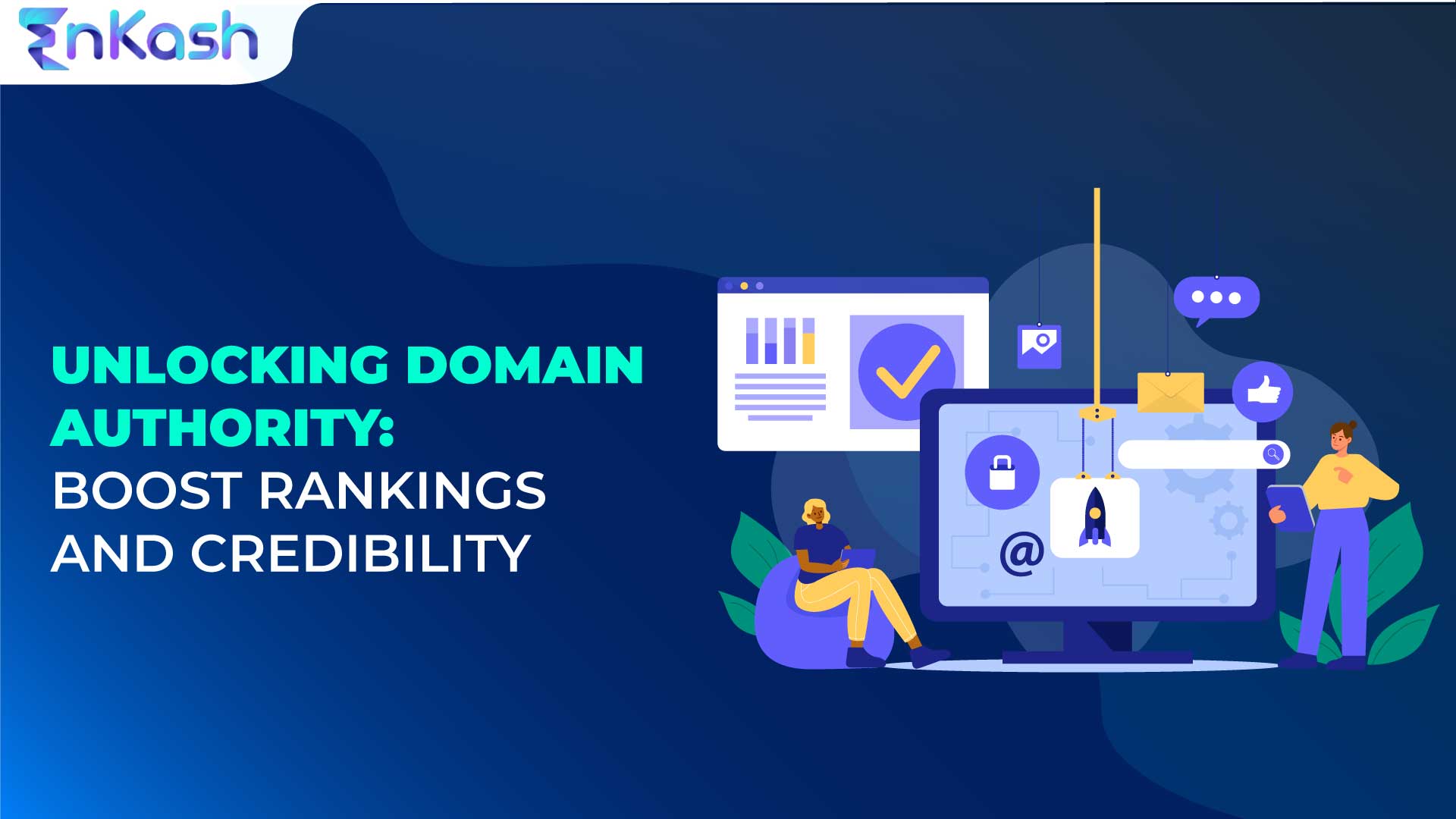In the digital landscape, domain authority refers to a metric that quantifies the credibility and authority of a website. It is represented by a numerical score, typically ranging from 1 to 100, and serves as an indicator of how likely a website is to rank higher in search engine results. Domain authority is not a metric directly used by search engines, but rather a tool developed by Moz, a prominent SEO software company, to help webmasters and SEO professionals assess the relative strength and potential performance of a website.
What is Domain Authority?
Domain Authority (DA) is a crucial metric that can significantly impact your website’s performance in search engine rankings. Discover what domain authority means, why it matters, and how you can enhance it to boost your online presence and visibility.
The Concept of Domain Authority
Domain authority is a composite score that takes into account various factors, including link profile quality, content relevance, website structure, and user experience. Moz’s domain authority metric uses a logarithmic scale, meaning that it becomes increasingly difficult to improve the score as it approaches 100. Thus, a website with a higher domain authority is deemed more authoritative and has a greater likelihood of ranking well in search engine results.
Moz’s Domain Authority Metric Explained
Moz calculates domain authority by considering factors such as the quantity and quality of inbound links, the diversity of link sources, the overall popularity and trustworthiness of the website, and other SEO-related elements. The algorithm analyses these factors and assigns a score, which can be used to compare websites and track changes over time. It is important to note that domain authority is a relative metric, meaning its value is best used when comparing websites within the same industry or niche.
The Significance of Domain Authority
Here’s a quick rundown to the importance of Domain Authority:
Influence on Search Engine Rankings
Domain authority plays a significant role in determining a website’s performance in search engine rankings. Websites with higher domain authority are more likely to rank higher for relevant keywords and attract organic traffic. Search engines consider domain authority as a signal of the website’s trustworthiness, credibility, and expertise in a particular subject.
Building Trust and Credibility
A strong domain authority helps to establish trust and credibility with both search engines and users. When your website has a higher domain authority, it indicates to search engines that your site is reliable and provides valuable content. Users are also more likely to trust and click on websites with higher domain authority scores, leading to increased traffic and potential conversions.
Competitive Advantage and Differentiation
Domain authority provides a competitive advantage by distinguishing your website from others in the same industry or niche. A higher domain authority signals that your website is more influential and trustworthy compared to your competitors, potentially attracting more organic traffic and securing better positions in search engine rankings.
Factors Affecting Domain Authority
Backlinks and Link Profile Quality
Backlinks from reputable and authoritative websites are crucial for improving domain authority. Focus on acquiring high-quality backlinks from relevant sources in your industry. Regularly monitor your backlink profile, disavowing any toxic or spammy links that may negatively impact your domain authority.
Content Relevance and Quality
Creating valuable, informative, and engaging content is essential for enhancing domain authority. Develop a content strategy that aligns with your target audience’s interests and needs. Optimize your content with relevant keywords, use internal linking to connect related content, and encourage natural link acquisition through the creation of valuable resources.
Website Structure and User Experience
A well-structured website with clear navigation and user-friendly experience contributes to domain authority. Ensure that your website is easily accessible, loads quickly, and provides a seamless browsing experience across different devices. Improve the website’s organization, logical hierarchy, and intuitive navigation to enhance user engagement and satisfaction.
Social Signals and Brand Authority
Social signals, such as likes, shares, and comments on social media platforms, can indirectly influence domain authority. Develop a strong social media presence and encourage audience engagement to generate social signals. Additionally, focus on building brand authority by establishing your expertise, actively participating in industry discussions, and gaining recognition from reputable sources.
Assessing and Monitoring Domain Authority
Tools to Measure Domain Authority
Several tools are available to check domain authority, including Moz’s own MozBar, Link Explorer, and other third-party SEO tools. These tools provide insights into your website’s domain authority score, as well as comparisons with competitor websites. Regularly monitor your domain authority to track progress and identify areas for improvement.
Tracking and Analysing Progress
Set up a system to track changes in your domain authority over time. Monitor the impact of your SEO efforts, such as link building campaigns, content optimization, and user experience enhancements. Analyze the correlation between these efforts and the fluctuations in your domain authority score to identify effective strategies.
Comparing Domain Authority with Competitors
Benchmarking your domain authority against competitor websites can provide valuable insights. Compare your domain authority score with competitors in your industry or niche to understand where you stand and identify opportunities for improvement. Analyze the strategies they employ to achieve higher domain authority and adapt them to your own website.
Strategies to Improve Domain Authority
Building High-Quality Backlinks
Focus on acquiring natural and high-quality backlinks from reputable websites in your industry. Develop relationships with influencers and thought leaders, create link-worthy content, and engage in guest blogging opportunities. Remember that the quality, relevance, and diversity of your backlink profile are crucial for improving domain authority.
Creating Engaging and Relevant Content
Invest in creating valuable and comprehensive content that caters to your target audience’s needs. Develop a content strategy that focuses on producing informative articles, blog posts, videos, infographics, and other forms of content that attract and engage users. Promote your content to gain visibility and encourage natural link acquisition.
Optimizing On-Page Elements
Pay attention to on-page optimization factors, including meta tags, headings, keyword usage, and internal linking. Optimise your website’s structure, ensuring that search engines can easily crawl and understand your content. Improve the overall user experience by optimizing page load times, mobile responsiveness, and intuitive navigation.
Enhancing User Experience and Site Performance
Prioritize user experience by ensuring your website is easy to navigate, visually appealing, and provides valuable content. Optimise for mobile devices, as an increasing number of users access websites through smartphones and tablets. Improve site performance by optimizing images, enabling browser caching, and using efficient coding practices.
Maintaining and Sustaining Domain Authority
Regularly Auditing and Updating Content
Perform periodic content audits to identify outdated or underperforming content. Update and optimise existing content to ensure its relevance and accuracy. Remove or redirect any obsolete pages or broken links that may negatively impact your domain authority.
Monitoring Backlink Profile and Disavowing Toxic Links
Continuously monitor your backlink profile to identify any low-quality or spammy links that may harm your domain authority. Use tools to disavow toxic links, signaling to search engines that you do not endorse them and safeguarding your website’s reputation.
Keeping Up with SEO Best Practices
Stay updated with the latest SEO best practices and algorithm updates to maintain and improve your domain authority. Stay informed about changes in search engine algorithms and adjust your SEO strategies accordingly. Regularly conduct keyword research, monitor trends, and adapt your content and optimization techniques to align with evolving search engine guidelines.
Domain Authority vs. Page Authority
Metric |
Domain Authority |
Page Authority |
Definition |
Measures the overall authority and credibility of a domain or website. |
Measures the authority of a specific web page within a website. |
Factors Considered |
Quality and quantity of backlinks, content relevance, website structure, and user experience. |
Similar factors as domain authority but on a page-level basis. |
Purpose |
Provides an indication of the potential ranking strength of the entire website. |
Helps determine the potential ranking strength of a specific page within the website. |
Comparative Use |
Used to compare the authority of different websites. |
Used to compare the authority of individual web pages within the same website. |
Relative Metric |
The higher the domain authority score, the greater the likelihood of ranking well in search engine results. |
The higher the page authority score, the greater the potential ranking strength of the specific page. |
Final Thoughts!
Recap of Domain Authority’s Importance
Domain authority is a critical metric that influences your website’s search engine rankings, credibility, and competitive advantage. It reflects the trustworthiness and expertise of your website in the eyes of search engines and users.
Actionable Steps to Boost Domain Authority
Implement the strategies mentioned earlier to improve your domain authority. Focus on building high-quality backlinks, creating relevant and engaging content, optimizing on-page elements, enhancing user experience, and monitoring and adapting to changes.
Emphasizing the Long-Term Benefits
Improving domain authority is an ongoing process that requires consistent effort and adaptation. By enhancing your domain authority, you can attract more organic traffic, gain trust and credibility, differentiate yourself from competitors, and achieve long-term success in search engine rankings.
Also Read: Roles and Responsibilities of CTO
In conclusion, understanding domain authority is essential for maximizing your website’s potential. By focusing on factors such as backlinks, content quality, user experience, and social signals, you can improve your domain authority, enhance search engine visibility, and establish your website as a trusted and authoritative source in your industry. Regular monitoring, optimization, and adherence to SEO best practices will help you maintain and strengthen your domain authority over time, leading to sustained online success.














